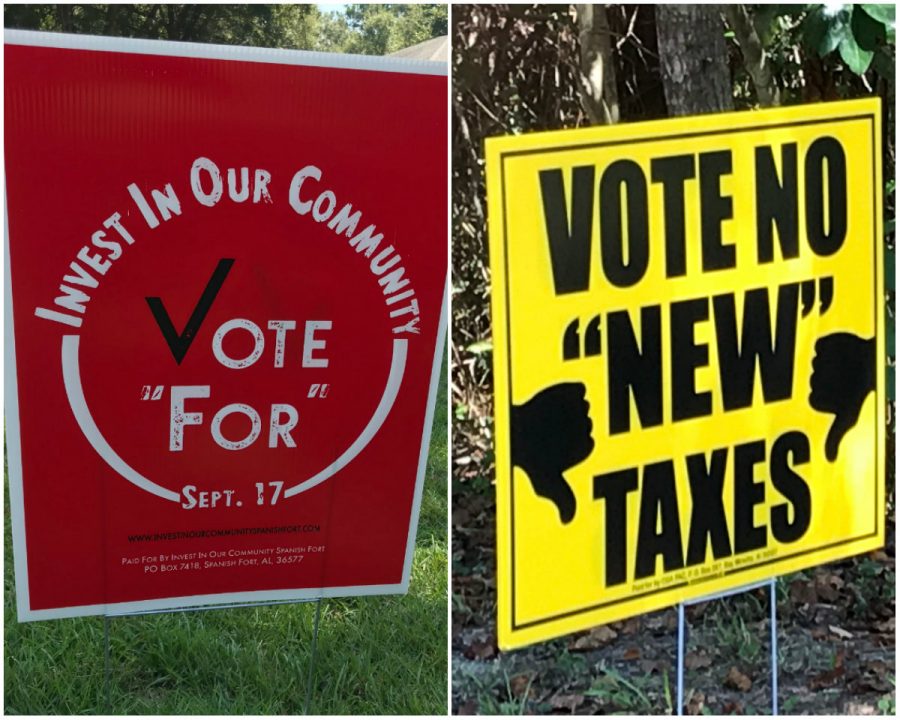You should figure out your own political beliefs
TNS
Yard signage on display in the Wakefield subdivision in Spanish Fort, Ala., on Friday, Sept. 13, 2019. On the left is a sign in support of a 3-mill property tax increase for schools and on the left is a sign in opposition. Voters in Spanish Fort and Fairhope will head to the polls on Tuesday, Sept. 17, 2019, to vote on whether their taxes should be raised to support academics within the schools in their cities.
There is a lot that goes into one’s personal political beliefs, whether it is factors like their gender and ethnicity or their religion and region they grew up in. None of these are bad reasons to shape a set of beliefs, but it is important to make sure that these are factors in your own decision and not just a decision passed onto you because of your affiliation with a group.
What I am talking about are statements like “Real Christians are Republicans” and “You can’t be black if you’re not a Democrat.” While there is a ton of crossover between Christian and conservative beliefs, and there is a lot of push for minorities on the more liberal side of things, it is not accurate to make such broad statements about people.
You cannot demean someone just because they decide to take more than one character trait into account when they enter a voting booth. In fact, that tactic is one that more people should at least consider.
Sites like The Political Compass ask the right questions to help a person figure out what exactly they believe in, also accounting for third-party or moderate options. You respond to the quiz’s questions with a range of “strongly agree” to “strongly disagree,” and in about 10 minutes, you have a pretty solid answer to what your personal ideology is.
When it comes to voting specifics, like candidates and such, I Side With is a solid site for picking out not only your party but also the candidates you agree with. Right now, it is set to help you with 2019 elections, but in the coming year, this site will be important for figuring out your 2020 presidential election strategy.
These sites are almost more interesting in tandem than they are on their own. In the lead-up to the 2016 election, The Political Compass told me that I was a left-leaning moderate. After taking the I Side With quiz twice, however, the results came back with two separate Republican candidates, one of whom I had never heard of prior.
I still voted that year based on my own research outside of the sites, but the quizzes did give me more options suited to my beliefs, including a third-party candidate that I had never considered before.
Now, let me be clear: there is nothing wrong with falling into what is considered the general consensus. If you are a Californian liberal or a deep south conservative, that is totally fine. Those patterns would not be so well known if there were not regular examples of it.
However, you also have to acknowledge that there is a Mexican American woman out there who voted for Donald Trump because he really did appeal to her beliefs. Around the time of the 2016 election, I heard people denouncing people like her of her racial status because of that. I admit that, at the time, even I felt some hard feelings toward people who did not vote how I expected them to.
But that voter knew enough what they truly believed in to know that they wanted to go against the grain. At least that much is admirable.







